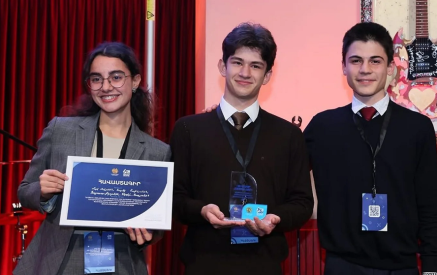In an urgent opinion published today, the Council of Europe’s Venice Commission strongly recommends repealing the Law of Georgia on Transparency of Foreign Influence in its current form, as its fundamental flaws will involve significant negative consequences for freedoms of association and expression, the right to privacy, the right to participate in public affairs as well as the prohibition of discrimination.
Following a request of the Council of Europe’s Parliamentary Assembly, the Venice Commission has assessed the law through its urgent procedure. It regrets that the Georgian parliament did not wait for its opinion before adopting the law, despite calls by the President of the Parliamentary Assembly and by the Secretary General of the Council of Europe.
The opinion analyses the law’s compatibility with applicable international and European standards. It concludes that the restrictions set by the law to the rights to freedom of expression, freedom of association and privacy are incompatible with the strict test set out in the European Convention on Human Rights and the International Covenant on Civil and Political Rights as they do not meet the requirements of legality, legitimacy, necessity in a democratic society and proportionality, as well as with the principle of non-discrimination.
The Law, under the alleged aim of ensuring transparency, has the objective effect of risking the stigmatizing, silencing and eventually elimination of associations and media which receive even a low part of their funds from abroad. A strong risk is created that the associations and media which come to be affected will be those who are critical of the government, so that their removal would adversely affect open, informed public debate, pluralism, and democracy.
Read also
The Venice Commission strongly recommends that the Georgian authorities abandon the special regime of registration, reporting and public disclosure requirements for civil society organisations, online media and broadcasters receiving foreign support, including administrative sanctions. While existing Georgian legislation already contains provisions requiring organisations concerned by the law to register and report, including on their sources of funding, no convincing explanation has been given on why the existing obligations would be insufficient for the purpose of ensuring transparency.
In case the existing provisions proved insufficient, the Georgian authorities should consider amending the existing laws in compliance with European and international standards. In particular, genuine representation (lobbying) activities on behalf of foreign countries could be regulated in line with European standards, should the current legislation prove inadequate.
The Venice Commission moreover regrets that this Law, which is human-rights sensitive but is also highly controversial in Georgian society, as is demonstrated by the massive reactions in the country, was adopted in a procedure which left no space for genuine discussion and meaningful consultation, in open disregard for the concerns of large parts of the Georgian people. This manner of proceeding does not meet the European requirements of democratic law-making, the Venice Commission concludes.
























































